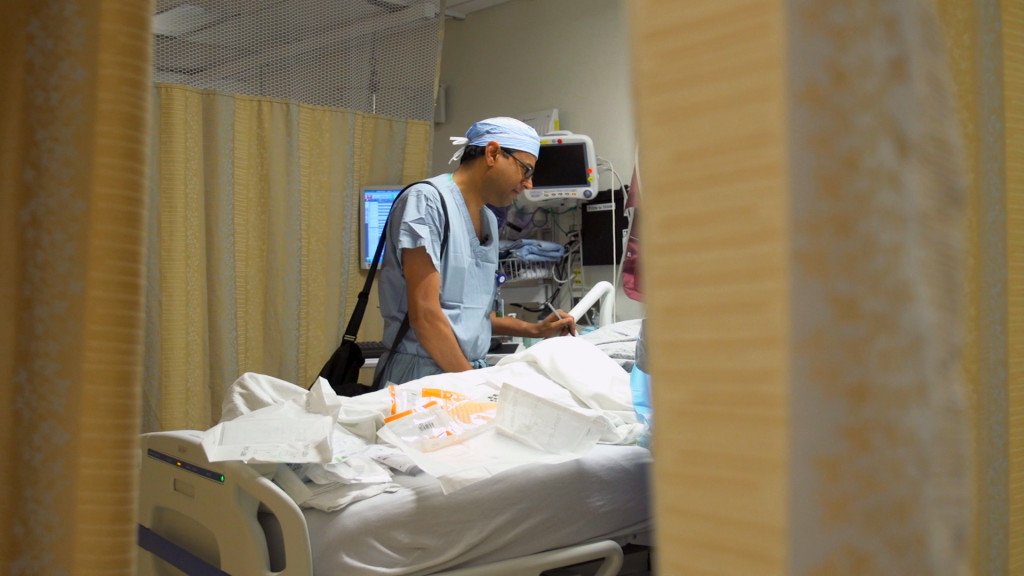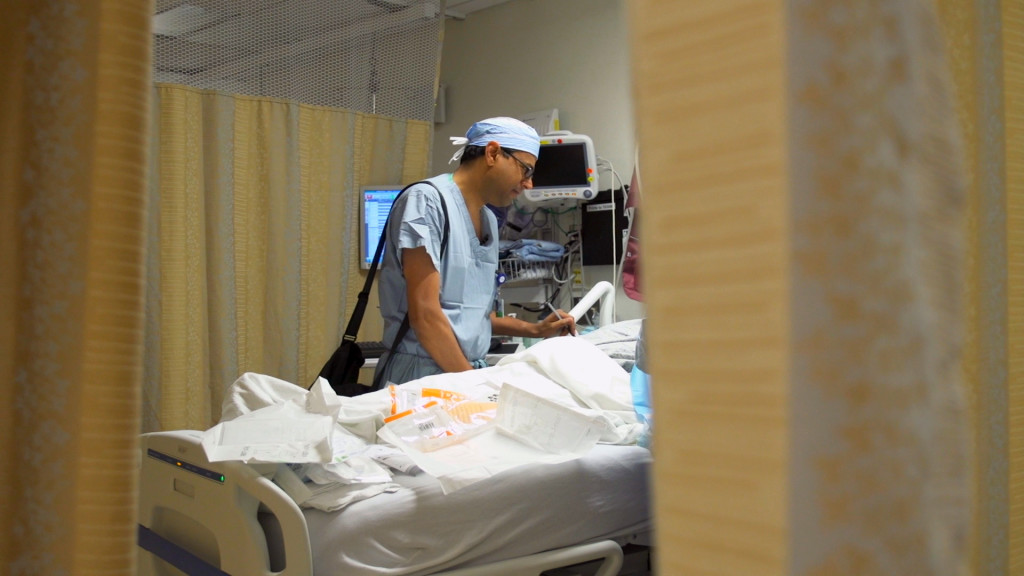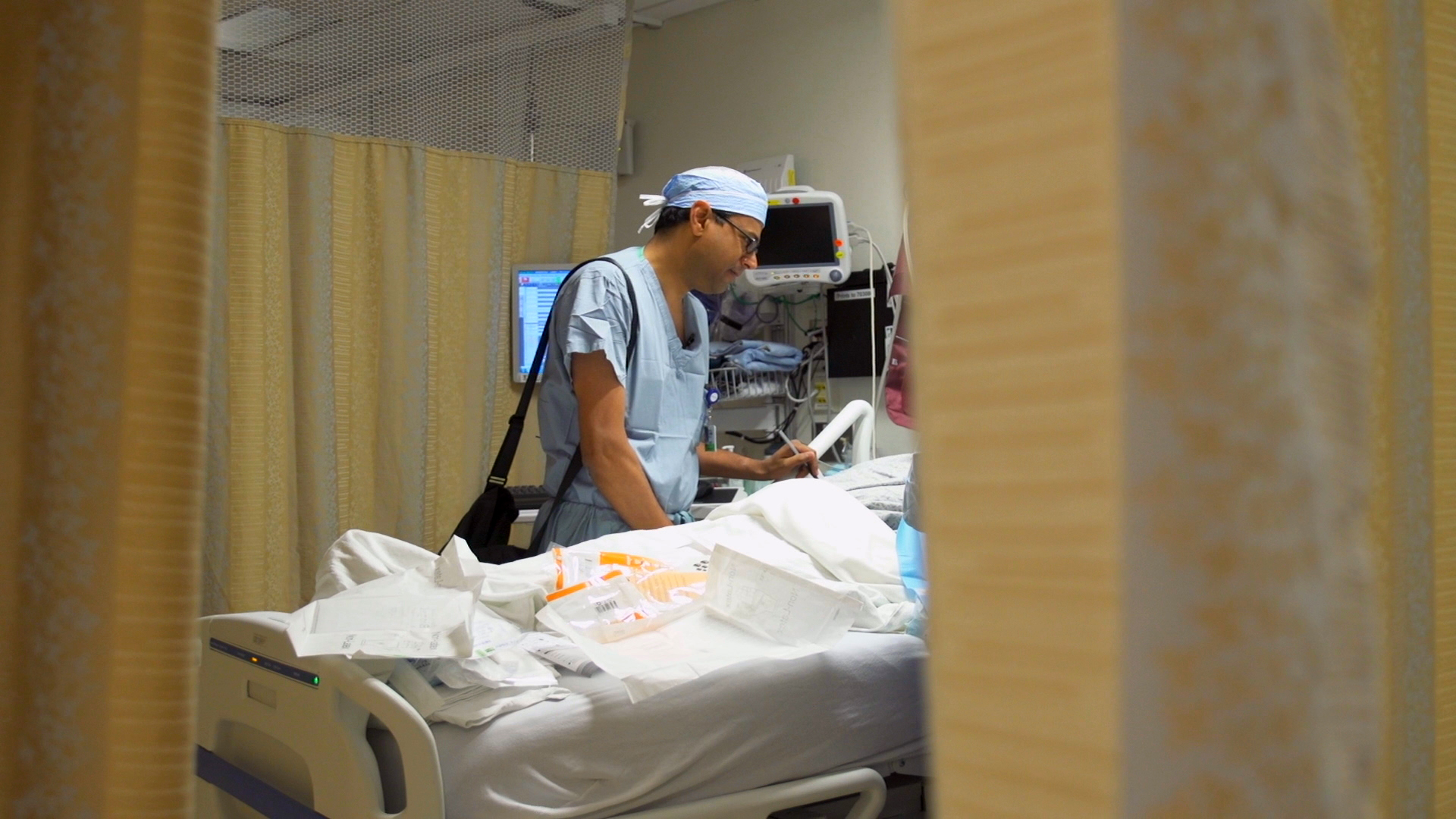How Should Doctors Help Terminally Ill Patients Prepare for Death?

October 17, 2014
Share
End-of-life care isn’t a subject that usually dominates media headlines.
But over the past few weeks, the story of Brittany Maynard — a 29-year-old woman diagnosed with terminal brain cancer who has chosen to end her life on Nov. 1 rather than allow the disease to progress — has stirred a national conversation about death and dying in America, and shone a spotlight on the relationships doctors have with patients in the end stages of their lives.
It’s an area where the U.S. health care system is falling short, according to renowned surgeon, best-selling author and New Yorker writer Dr. Atul Gawande — whose new book, Being Mortal, is the basis for a documentary film by the same name coming to FRONTLINE in winter of 2015.
Maynard’s story “is a sign that our health care system has failed her, because she cannot trust that medical personnel are going to recognize her priority of not suffering, and be willing to offer sufficient care and therapy,” Gawande says.
See what else Gawande had to say about Maynard’s case in this clip from a Harvard Book Store event our documentary crew filmed last week:
Why is it so hard for many U.S. doctors to talk about aging and dying — what Gawande calls “the two unfixables”? And how can the medical profession better help patients navigate the final chapters of their lives with confidence, direction and purpose?
FRONTLINE’s Being Mortal, from director Tom Jennings, will explore those questions in thoughtful detail — drawing on Gawande’s personal journey (including the prolonged dying process of his father), the stories of current patients and their families, and Gawande’s two decades of lessons learned from dying patients.
“You don’t have to spend much time with the elderly or those with terminal illness to see, over and over and over again, how medicine fails the people it is supposed to help,” says Gawande, who practices at Brigham and Women’s Hospital and Dana-Farber Cancer Institute in Boston. “Hope is not a plan. We find from our trials that we are literally inflicting therapies on people that shorten their lives and increase their suffering, due to an inability to come to good decisions.”
Watch the trailer for FRONTLINE’s Being Mortal below, and stay tuned for more details.

Related Documentaries
Latest Documentaries
Related Stories
Related Stories
Explore
Policies
Teacher Center
Funding for FRONTLINE is provided through the support of PBS viewers and by the Corporation for Public Broadcasting, with major support from Ford Foundation. Additional funding is provided the Abrams Foundation, Park Foundation, John D. and Catherine T. MacArthur Foundation, Heising-Simons Foundation, and the FRONTLINE Trust, with major support from Jon and Jo Ann Hagler on behalf of the Jon L. Hagler Foundation, and additional support from Koo and Patricia Yuen. FRONTLINE is a registered trademark of WGBH Educational Foundation. Web Site Copyright ©1995-2025 WGBH Educational Foundation. PBS is a 501(c)(3) not-for-profit organization.





















